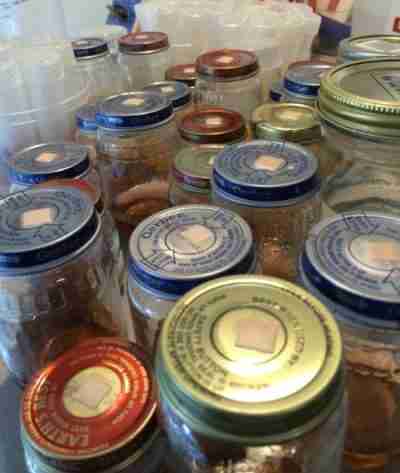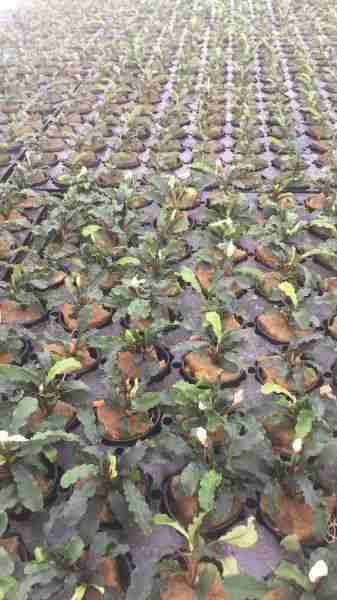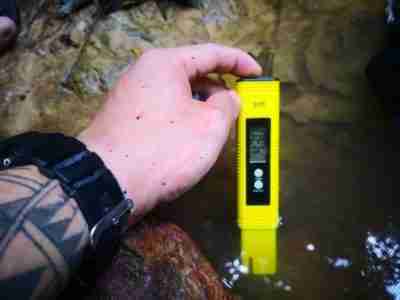 Biotope One was started to help educate aquarium and terrarium hobbyists and the general public about habitat destruction and to protect plants through cultivation. When plants have a monetary value they are considered valuable. In many regions deforestation and over-collection has pushed many species into or near extinction. Biotope One has been collecting plants and propagating them through plant tissue culture and conventional methods as well.
Biotope One was started to help educate aquarium and terrarium hobbyists and the general public about habitat destruction and to protect plants through cultivation. When plants have a monetary value they are considered valuable. In many regions deforestation and over-collection has pushed many species into or near extinction. Biotope One has been collecting plants and propagating them through plant tissue culture and conventional methods as well.
Endemic Plants Conserved by Plant Tissue Culture
The first goal is to start plant tissue culture production again. This was shut down for relocation reasons and it is time to start producing quantities of rare and hard to get plants to supply and spread throughout the hobby.
Collecting plant species so that they can be tissue cultured is the first step. Once cultures are going they can be spread throughout the hobby either in vitro or as ready to use plants. Providing quantities of plants in local areas reduce over-collection and offers a lower price to those searching for plants.
 Many endemic plants are destroyed, over collected, and lost to the world forever. Cultivation of these plants and spreading through the hobby helps reduce the risk that they will become completely extinct. Should the opportunity arise for habitat restoration they will be available. Many plants Biotope One has obtained so far have came from building sites, logging areas, and plantation development sites that were soon destroyed.
Many endemic plants are destroyed, over collected, and lost to the world forever. Cultivation of these plants and spreading through the hobby helps reduce the risk that they will become completely extinct. Should the opportunity arise for habitat restoration they will be available. Many plants Biotope One has obtained so far have came from building sites, logging areas, and plantation development sites that were soon destroyed.
Create Small Local Nurseries to Reduce Wild Collection
Partnering with small local nurseries in places like India, Borneo, and Malaysia will reduce over collection as well. Helping create small nurseries in these regions is important as it provides locals with income that they would otherwise gain from over collecting plant species. Most of these plant species are not protected and have little commercial value as it stands.
Create Breeding Programs for Fish and Other Fauna
Breeding programs in Europe and North America for aquarium fish will also be an important facet. Species of fish that can be obtained will be reproduced and raised in captivity. By providing natural type conditions these fish can be multiplied in captivity to reduce wild caught over-collection. Reducing wild collection helps support some wild populations that are already struggling with pollution and habitat destruction. By offering local healthy fish there is little incentive to import already strained numbers of wild caught fish.
Support Political and Social Action Against Palm Oil and Deforestation
Palm oil plantations are a major destructive force for jungle and other unique habitats. We lose a devastating amount of jungle and forest every year to destructive farming practices to supply the food industry with palm oil. Jungles are logged, burned, and planted with palm oil. Orangutans, elephants, tigers, and more are killed to secure these plantations. Plants are lost forever when this happens. We try to collect plants ahead of the burning so that they can be cultivated.

Habitat Cleanup and Restoration
Habitat clean up programs have been underway for some time. Replanting streams with bucephalandra that had been nearly stripped by plant collectors is important. Small groups of people have begun using what few plants are left in an area to replant what plant collectors have left barren. Hopefully, enough of these can be done to slow down overcollection. Cultivation is the most secure way to ensure the plants are not lost forever. Trash and other worrisome issues are addressed as they are found when possible.
Land Aquisition and Leases for Preservation in the Future is Hopeful
Acquiring land is unfortunately not in the budget for Biotope One at this time but it is the best way to protect habitat. In the future, if it were possible to own or lease land to protect it there would be a great interest to do so. Even protected land is illegally logged and must be constantly monitored to ensure that the resources are not stolen and habitat is not destroyed in the process.
Current and Future Programs
Nursery
Plant Tissue Culture Lab
Greenhouse
Regional greenhouses: India, Borneo, Malaysia, and more.
Palm oil campaigns: Flyers, Social Media Campaign, Banners, Stickers, Articles
Political Actions
Breeding Programs: Insects, Fish, Amphibians, Reptiles, Corals
Habitat Restoration
Private land acquisition
Public land restoration and clean up programs
Replanting
Habitat enrichment programs
 Biotope One A Study of Flora and Fauna
Biotope One A Study of Flora and Fauna